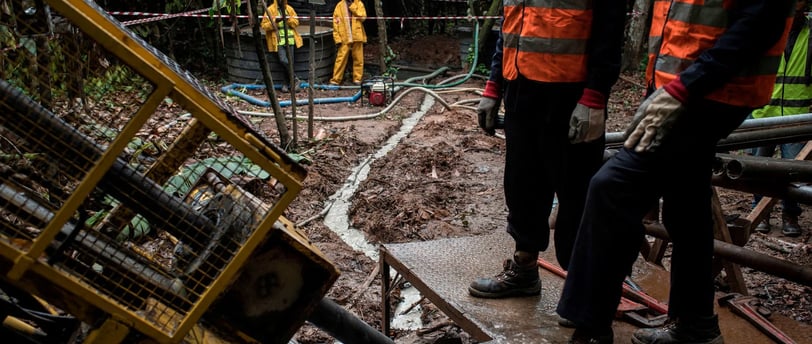The Human Toll of Unregulated Gold Mining: Ngauro
So the community in Chukudum is left asking questions
1/1/20252 min read
A Case Study of South Sudan's Chukudum
In the heart of Africa lies a story of exploitation, environmental devastation, and human suffering—a narrative woven by the unregulated mining of gold in third-world countries like South Sudan. Amidst the lush landscapes and vibrant communities of Chukudum, the shadow of illegal mining looms large, casting its pall over the very fabric of society.
Governor Lobong's decision to grant permits to Chinese companies for personal gain, as revealed in the Sentry report, serves as a stark reminder of the consequences of unchecked greed. The ramifications of such actions extend far beyond mere economic exploitation, leaving a trail of destruction in their wake.
At the heart of this issue lies the plight of the local communities who bear the brunt of unregulated mining practices. From environmental degradation to social upheaval, the effects are manifold and profound.
Environmental Destruction:
The allure of gold has turned swathes of pristine land into barren wastelands, scarred by the relentless pursuit of profit. Forests once teeming with life now stand silent, their ecosystems irreparably disrupted by indiscriminate mining activities. Rivers, once lifelines for local communities, now run murky with toxic pollutants, poisoning both land and water.
Human Rights Violations:
In the race for gold, human rights are often trampled underfoot. Reports of forced labor, child exploitation, and unsafe working conditions abound, painting a grim picture of life in the mines. Families torn apart, communities fractured, and individuals robbed of their dignity—such is the toll exacted by the insatiable hunger for gold.
Health Impacts:
The environmental consequences of mining extend beyond the land, seeping into the very bodies of those who call Chukudum home. Exposure to toxic chemicals such as mercury poses significant health risks, leading to respiratory illnesses, neurological disorders, and even death. The most vulnerable, including women and children, bear the brunt of these health impacts, their suffering often overlooked in the pursuit of profit.
Social Disruption:
The fabric of society in Chukudum has been torn asunder by the influx of outsiders seeking fortune in its gold-rich soil. Traditional ways of life are eroded, cultural values undermined, and social cohesion fractured. Inequality deepens as wealth accumulates in the hands of a select few, widening the gap between the haves and the have-nots.
Hope for Change:
Amidst the despair, there glimmers a ray of hope—a hope born from the resilience of the human spirit and the power of collective action. Grassroots movements are emerging, empowered by a shared desire to reclaim their land, their rights, and their future. From advocacy efforts to community-led initiatives, the people of Chukudum are mobilizing for change, demanding accountability from those who have exploited their land and their labor.
Conclusion:
The story of unregulated gold mining in South Sudan's Chukudum serves as a cautionary tale—a reminder of the human cost of unchecked greed and the imperative of responsible governance. It is a call to action for policymakers, activists, and citizens alike to stand in solidarity with the communities affected by mining, to advocate for their rights, and to strive for a future where prosperity is not achieved at the expense of people and planet alike. Only then can we truly ensure that the gold that glitters does not come at the cost of human suffering.


